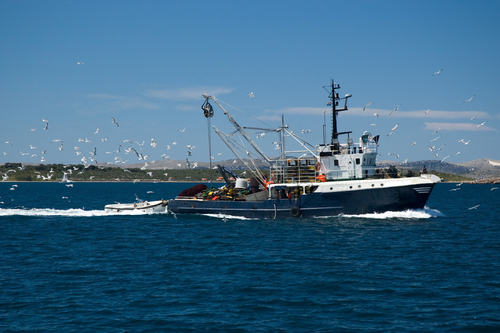PAS 1550:2017 developed for compliance with EU illegal, unreported and unregulated fishing regulation
BSI Staff Writer
Published date: |
|
Modified date: |
|
 For many people around the globe, seafood is an increasingly important source of livelihood and food security. The fishing and aquaculture industry generates over 250 million jobs worldwide, while, in some countries, seafood represents 50% of protein intake.
For many people around the globe, seafood is an increasingly important source of livelihood and food security. The fishing and aquaculture industry generates over 250 million jobs worldwide, while, in some countries, seafood represents 50% of protein intake.
However, 60% of the world’s fisheries are considered to be fully exploited (fished at maximum capacity) and 30% are overexploited (over-fished).
This pressure many fisheries are facing has a lot to do with illegal, unreported and unregulated (IUU) fishing. The most comprehensive estimates are that IUU fishing costs the global industry between 10 and 23.5 billion Euros annually – or between 11 and 26 million tonnes of catch.
As well as devastating the marine environment, IUU fishing makes it impossible to allocate resources and puts legitimate fishers at a disadvantage.
EU Regulation
In 2010, the European Union introduced regulation which sought to prevent, deter and eliminate illegal, unreported and unregulated fishing.
Prior to the regulation, an estimated 1.1 billion Euros of IUU fish was entering the EU each year. Its introduction has positioned the EU as a global leader in the fight against IUU fishing.
PAS 1550:2017
PAS 1550:2017 has been developed to help improve understanding of the EU IUU Regulation and to help the industry adapt their due diligence and risk assessment systems to reduce the risk of supplying or procuring IUU fish, or fish either caught or processed by workers who are not provided with decent working conditions.
The PAS gives recommendations on the following:
a)What are the considerations within a due diligence system in order to minimize the risk of IUU fish/seafood in the supply chain?
b)What needs to exist to assure decent conditions at work in the seafood sector?
c)What traceability systems are used to deliver the ability to verify claims?
The PAS builds on the work of the British Retail Consortium’s Advisory Note on avoiding the purchase of IUU seafood and gives further recommendations to the importers and processors of seafood on traceability and decent working conditions.
Who does the PAS apply to?
The PAS is for use by importers and processors that have an obligation to meet the requirements of the EU IUU Regulation, which includes the supply chains of seafood imported into and subsequently sold in the EU. The PAS can be of interest to any other organization involved in the seafood supply chain interested in improving or promoting legal sourcing practices, full chain traceability and decent work conditions.
The PAS can also be used by organizations trading products not covered by the EU IUU Regulation such as marine ingredients, pet food, etc.
Brexit implications
Last year, the UK – one of the EU’s largest seafood importers – voted to leave the EU. However, the exit transition is expected to take a significant time to complete and as the PAS is reviewed every two years, the impacts of Brexit will be part of that first review. Regardless of the UK leaving the EU, retailers, processors and importers will still want to be able to verify assurances that seafood they purchase has been caught in compliance with this code of practice.
PAS 1550:2017 can be purchased from the BSI shop.
Click here to provide feedback

